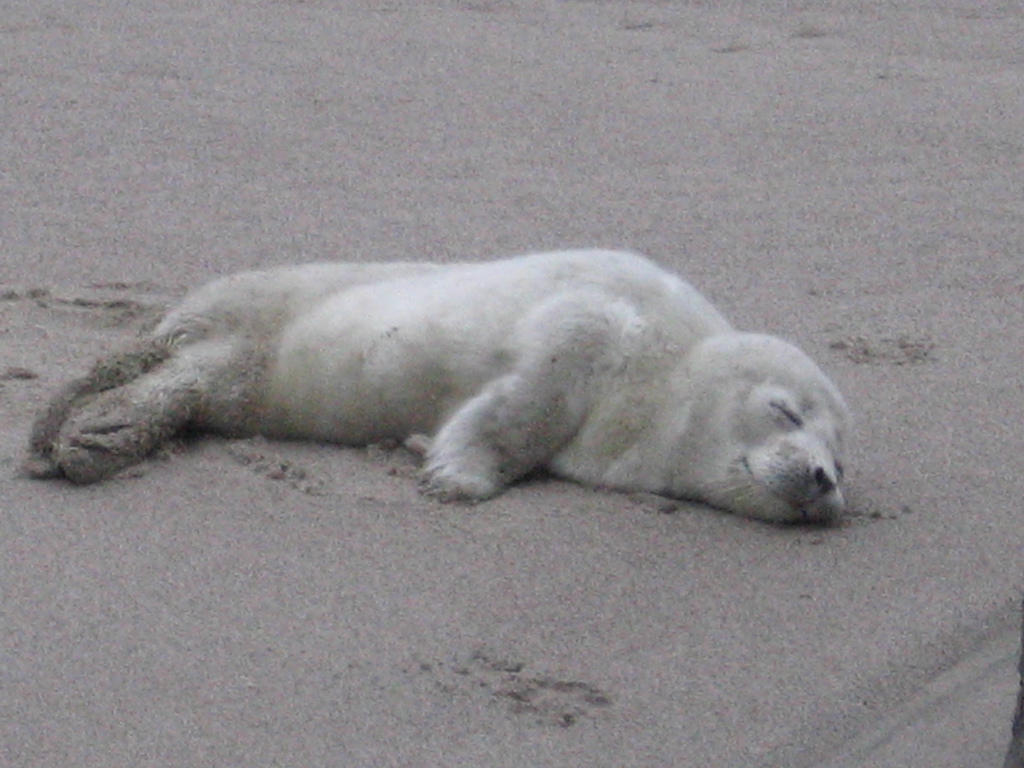
It might be true luck comes in waves. And so might love. And seal pups to the shore here in Lincoln City, Oregon.
On the road we've stopped to day camp and eat oatmeal cooked over our single burner stove. Take in the gorgeous views. Check the surf. A swell was up yesterday. South Jetty Newport was temptuously big. Devil's Punch bowl up the road was blown out by the time we arrived but Macky and PJ took a dip anyway.


Lincoln City is an old beachy tourist town sporting Chinook Winds Casino. Our last couple of stops have shrunk our fun tickets, but we ain't complaining. Just get out there and wait for another wave, right?

Motel life feels so mundane compared to the excitment of sleeping "out". Sure our bones be aching a bit. Sure we get crabby cuz of it. Crabby? Oh, well, yeah, lets see, how about a Fresh Crab Dinner last night! GOAL!
A little bit about the Chinook name:
When the first European ship sailed into the river and anchored eight miles above the mouth, offshore from proud Qwatsamts, a three-row village, the mariners wanted to know what to call the people. One sailor asked some sort of question, in some approximation of language, pointing at the village. Something like "What are these people called?" Pointing, by the way, was dangerous and ill-mannered among these people. A headman or spokesman responded Chinoak or Tsinuk or something like that. Forever after, the white people called the people in that village, and three or four others along the riverbank nearby, Chinook or Chinooks. (The river people at first called the strangers tlohonnipts, "those who float [or drift] ashore.")
After a while, when they learned that the people upriver for a couple of hundred miles had roughly the same languages, the tlohonnipts called them Chinook too. Years later, all canoe-paddling Indians on the North Pacific Coast were sometimes referred to as Chinooks. All that, based on no more than what some person answered when strangers impolitely pointed toward the village of long cedar-plank houses, row on row along the shore, which town they called Qwatsamts.
Explorers Meriwether Lewis and William Clark would put down as the name of a supposed Kiksht-Chinook-speaking tribe the response "he pointed at me."
Tsinuk was what the Chehalis, who lived to the north and spoke an entirely different language, called the village or villagers, or some of the river people Chinook, or perhaps Chin people. For though it is probably only a coincidence, the suffix ooks or uks meant plural people in the Chinook language. So it is possible, though unlikely, that the people were really called the Chin, and Chinooks meant more than one Chin person. Of such shadows are names made, when strangers with no common language first meet. Personally, I favor Chin for its simplicity and the feel of it against the roof of my mouth, Tchinn.
from Rick Ruben
Finally, here's a dungeness crabber hard at work. Work is often play and play, work. It's balance, Penzy says at 85 years old, chomping at the bit for PJ to finish this, so she can go play herself!!

No comments:
Post a Comment